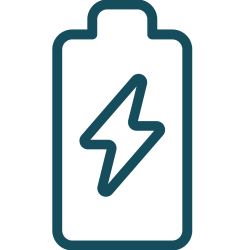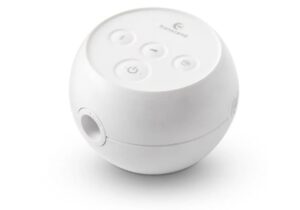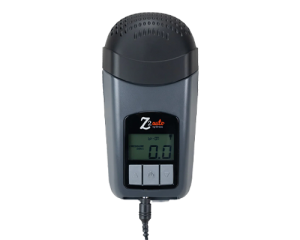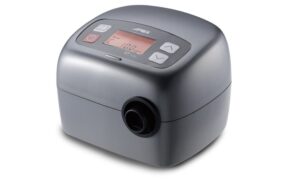- Price: $919
- Sound level (dBA): 30
- Dimensions (LxWxH in inches): 5.4″ x 3.3″ x 2.1″
- Warranty (years): 2 years
- Weight (pounds): 0.66
- Standout feature: FAA approved
Best Travel CPAP Machines in 2025: A Complete Guide
Key Takeaways
- Our pick for the best CPAP machine for travel is the ResMed AirMini Autoset Travel CPAP Machine, which weighs less than a pound and is highly portable.
- When selecting a travel-friendly CPAP machine, consider affordability, noise level, weight, warranty, and features.
- A basic CPAP machine can cost $300 to $1,000.
- Around 45 million Americans have obstructive sleep apnea and may require a CPAP machine.
- Continuous positive airway pressure (CPAP) machines are commonly used to treat sleep apnea and improve sleep quality.
If you’re one of the 45 million people with sleep apnea, you likely rely on a CPAP machine to help you breathe at night. But what happens when you need to travel? Packing a bulky CPAP machine can be cumbersome, even if it is one of the best CPAP machines.
That’s where travel CPAP machines come in. These portable devices are designed to be smaller, lighter, and easier to transport without compromising the effectiveness of your therapy. Whether you’re flying, driving, or taking a train, travel CPAP machines ensure you continue to get the restful sleep you need without the hassle of a standard machine.
In a 2023 survey by our team, 30% of CPAP users said they bring their regular machine when traveling, while just over 21% opt for a travel CPAP model.
These portable machines are built to fit seamlessly into your travels, offering convenience, comfort, and peace of mind so you can focus on enjoying your trip while prioritizing your sleep health.
Best travel CPAP machines in 2025
- ResMed AirMini Autoset Travel CPAP Machine: Editor’s Pick
- Transcend Micro Auto CPAP Machine: Best Lightweight
- Breas Z2 Auto CPAP Machine: Best Value
- Apex XT Auto CPAP Machine: Least Expensive
What we look for in a travel CPAP machine
We found several important factors when testing CPAP machines specifically for travel, including:

Portability
A CPAP machine for travel should be compact and lightweight. It should fit comfortably in luggage without adding extra bulk.

Noise Level
A quiet environment is essential for sleep, so we asses machines based on their noise output. The best travel CPAP machines operate quietly to ensure you and those around you can sleep peacefully.

Battery Life
A reliable battery is important for travel, especially if you’re flying or camping where power outlets may not be readily available. We look for models with long-lasting batteries or the ability to connect easily to external battery packs.

Ease of Use
A travel CPAP should be user-friendly and have intuitive controls, especially since travel often involves unfamiliar environments. A simple setup is also a must.
ResMed AirMini Autoset Travel CPAP Machine: Editor’s Pick
Our expert take on the ResMed AirMini
During our research, we found most users were happy with their purchase and the therapy they received from the ResMed AirMini, especially due to the features that enhance its usability and convenience:
- Bluetooth connectivity: With Bluetooth, you can connect your machine to the AirMini app on your smartphone or tablet, enabling you to track your therapy data (time of use, number of apnea events, and mask seal strength), adjust pressure and mode settings, and receive feedback with a nightly sleep score.
- Pressure modes/range: The ResMed AirMini offers a wide pressure range, accommodating a variety of therapy needs. It can deliver continuous positive airway pressure and auto-adjusting pressure (APAP) based on the user’s breathing patterns and prescription. APAP mode was designed for people whose sleeping patterns change during sleep and delivers lower pressure upon exhalation, often making it more comfortable for the user.
- AutoRamp technology: This technology can help you fall asleep easier because it starts at a lower, more comfortable pressure while you’re awake and adjusts up to prescribed levels once you have fallen asleep.
- Waterless humidification: HumidX keeps your airways from drying out without adding water. It’s achieved by inserting special filters into the mask and is available with four of ResMed’s five mask kit options.
- In-flight use: The ResMed AirMini is FAA-compliant for use on airplanes. Since this model requires a power source, consider requesting a seat near an outlet. If you’re traveling internationally, ask your airline in advance if you should bring an adapter.
Who may love it
- Frequent travelers who need a lightweight, portable CPAP machine
- Tech-savvy users who appreciate Bluetooth connectivity
- Air travelers who require an FAA-approved CPAP machine for in-flight use
Who may want to avoid it
- Budget-conscious shoppers may find the price too high
- Users needing battery power, as the ResMed AirMini must be plugged in
- People sensitive to noise
Customer reviews
“I brought this for a 6-day wilderness rafting trip in Desolation Canyon in Utah. It is the lightest weight battery and solar panel setup that I looked at. It was easy to lay the solar panel on top of our cooler as we floated the river, and it wasn’t a problem to fold it up occasionally when we went through a splashy rapid.”
– Karen M., verified buyer in August 2024
“I worried that once I needed CPAP therapy I would be burdened with bulky equipment. This travel CPAP seems a great travel alternative. It was shipped promptly and and is a very full featured little machine. I called Sleeplay twice and got immediate helpful service. I won’t actually need it until next April, so I have time to get some filters, explore its features and see how quiet it is. Apparently, it is a bit louder than the full size but equivalent to a whisper.”
– Tom P., verified buyer on February 2024
Read more in our ResMed CPAP machines review.
Transcend Micro Auto CPAP Machine: Best Lightweight
Our expert take on the Transcend Micro Auto CPAP Machine
The Transcend Micro Auto CPAP comes with the following features:
Portable power options: The optional battery pack and solar charger make this machine versatile for different travel settings, especially where you may not have access to an AC outlet. The P8 battery lasts for two nights and costs an additional $319. You can also purchase a solar charger for $250 that will charge the P8 battery with the sun (even in low-light settings), so it’s great for weeklong camping trips or other extended time away from electricity.
EZEX Pressure Relief: During exhalation, this function automatically reduces pressure, which may make it more comfortable. This feature is similar to the APAP mode setting on the AirMini.
Gentle rise: This auto ramp feature lets you fall asleep to a lower, more comfortable pressure that ramps up gradually once you’re asleep. You can adjust this feature to set specific ramp times or even turn it off.
Bluetooth connectivity: The MySleepDash app offers guided setup, adjustment settings, and data recording, allowing users and health care professionals to monitor therapy progress.
Drying mode: In the morning, activate a 30-minute “drying mode” cycle to remove built-up moisture inside the machine and tubing. You can use this feature to help your machine stay dry and reduce contamination.
WhisperSoft Muffler: This accessory is placed in line with the tubing, so it functions like a muffler and reduces the sound of air passing through the tubing.
Who may love it
- Minimalist travelers who prioritize packing light
- Campers and adventurers who need flexible power options
- Users who want mask flexibility
Who may want to avoid it
- Users looking for built-in humidification
- Shoppers on a budget
- People wanting an all-in-one solution
Customer reviews
“I have been using this one for a week now. I don’t understand why the ones insurance will pay for have to be so large and bulky? This little guy is about the size of a large orange and does the job perfectly! I opted for the battery and the humidification filter as well. I live in a super dry, high desert climate, and I didn’t notice any difference from my Respironics machine with the water tank! I was comfortable all night long.”
– Teresa B., verified buyer in July 2024
“I bought this machine for traveling as I enjoy jet setting around the world as much as I can. Needed something small to take with me on my travels, I saw the transcend and thought perfect it was small enough to put in my carry-on and I didn’t have to change my mask. However, it made it harder, longer and more difficult to fall asleep. The machine is loud for the user, it’s a quiet machine for the person sleeping next to you, my boyfriend thanks you. Since I’m the one using it, I need it to be silent and sadly this machine is not.”
– Melody, verified buyer on July 2024
Breas Z2 Auto CPAP Machine: Best Value
Our expert take on the Breas Z2 Auto CPAP Machine
The Breas Z2 Auto CPAP comes with the following features:
- Bluetooth connectivity: The Nightlog app lets you adjust settings on your machine and view and download sleep-tracking data to share with your physician.
- Auto-adjusting pressure: This function uses advanced algorithms (a Breas algorithm called Z-Breathe) to automatically adjust the pressure based on the user’s breathing patterns. It will reduce pressure upon exhalation in order to be more comfortable for the user. This APAP functionality is in all of the machines in our review. Additionally, this machine can also be used with fixed pressure (standard CPAP) settings.
- In-flight pressure adjustment: The Breas Z2’s auto-adjusting pressure has you covered on land and in the air. On airplanes, it automatically adjusts to the cabin’s pressure.
- Auto start/stop: The machine detects when you put on or remove your mask and starts or stops accordingly.
- Ramp feature: Like the other machines in this review, the Breas Z2 allows the user to fall asleep at a lower pressure setting, then gradually ramps up the pressure once you have gone to sleep.
- Waterless humidification: Similar to how the AirMini has waterless humidification, this machine comes with a humidifier cartridge, allowing users to enjoy the benefits of added moisture during therapy without needing to search for water.
- Rechargeable battery option: When fully charged, the rechargeable lithium-ion battery provides one night’s use.
- Ultra-quiet operation: At 26 decibels (for reference, 30 decibels is like a whisper), the AirMini is the quietest machine on our list.
- Automatic voltage conversion: The power supply converts any voltage ranging from 100–240 volts; you just need the proper plug for the country you visit.
Who may love it
- Value-conscious shoppers looking for an affordable CPAP machine
- International travelers
- People sensitive to noise
Who may want to avoid it
- Users wanting extreme compactness
- Those requiring supplemental oxygen
- Those new to CPAP machines
Customer reviews
“I did not have any problems with the noise of the machine. Yes, slightly louder than home unit, but barely. The thing that I am still getting used to is the lack of in-line humidifier. I am using the filters that help with that, but it isn’t the same for sure. Hopefully after more trips I will get used to it. Other than that, it seems to work great and takes up much less room in the suit case. The customer service was excellent. They answered all of my questions and did not seemed rushed to get me off the phone.”
– verified buyer in June 2024
“Now that I have tried the Breas Z2, I understand both the reviews that say it is quiet and the ones that say it is loud. It is fairly quiet but the noise that it makes is NOT white noise. Mine makes a 2 tone, musical sounding wheeze that sounds a bit like a bad flute; it fluctuates as I inhale and exhale. It isn’t loud, but it is enough that it made it a bit hard to fall asleep and it irritated my partner because of the nature of the noise. The sound comes from the machine and not any of the hoses. I’m keeping it because otherwise it worked, the size and weight will be excellent for travel, and not needing to fuss with distilled water is a big advantage.”
– Kathleen S., verified buyer in July 2024
Apex XT Auto CPAP Machine: Least Expensive
Our expert take on the Apex XT Auto CPAP Machine
The Apex XT Auto comes with the following features:
- Pressure Variation Algorithm: Designed to relieve discomfort during exhalation, it works by automatically reducing pressure, making it easier to breathe out, similar to other APAP operation modes.
- Built-in power supply: With this model, you don’t have to deal with an external power brick. While this means you don’t have to carry around an extra accessory to power your CPAP, you do have to plug it into the wall, so make sure to have an extension cord if needed.
- Ramp feature: Like the other options on this list, this model offers a ramp feature that gradually increases pressure after falling asleep to prescribed levels over 45 minutes.
- Automatic altitude adjustment: If you need to use your CPAP on a plane, this feature will adjust pressure for different altitudes.
- Optional heated humidifier: Designed to prevent dry mouth and throat, this accessory comes as a tank that attaches directly to the machine. Unfortunately, it requires water and adds quite a bit of bulk.
Who may love it
- Budget-conscious shoppers looking for an affordable CPAP machine
- Frequent travelers who need a machine with auto-adjusting technology
- Users who prefer a quiet machine
Who may want to avoid it
- Users who prioritize portability
- Those needing humidification
- People who need battery operation
Customer reviews
“I’m very happy with this machine. It is very quiet. It automatically adjusts the airflow to your needs as you are sleeping. I may require 11 to 12 cm when my allergies are bad. But only 7 or 8 when they are not. I would recommend this cpap for anyone. I seldom need a humidifier so I purchased with out the optional humidifier. It is small and compact and comes with a nice travel case.”
– verified buyer in June 2024
“I’ve used a cpap for 14 years and this little beauty is really, really quiet! I travel alot and it is light, quick to set up, and it does not dry me out in areas of high humidity if I don’t use the humidifier. Also, I have not yet been stopped by the travel authorities to check it for explosive residue like my old unit.”
– verified buyer in June 2023
How we review travel CPAP machines
Our team has spent over 250 hours reviewing and researching CPAP machines, masks, accessories, and other positive airway pressure (PAP) devices. Our approach to CPAP machines is informed by medical experts in the field, including Elizabeth Lyda, a registered respiratory therapist in Rochester, New York. We continually read and review academic research to understand the benefits and details of CPAP therapy and how the devices work. We also surveyed 600 real CPAP users to learn more about their experiences using the machines and what matters most to them. Our testers mystery shop online CPAP suppliers, going through the purchasing process just like a real customer would and contacting customer service, to understand what information readers will need to order their device and how responsive each supplier is to questions.
We have researched more than 45 CPAP models from 15 manufacturers and compared each one on a set of key specifications and features. We rate CPAP devices on the following factors:
- Cost
- Noise level
- Weight and size dimensions
- Mask compatibility
- Comfort
- Humidification
Read our CPAP review methodology to learn more about our review process.
What to consider when shopping for a travel CPAP machine
Finding the right travel CPAP machine can make a big difference in the quality of your sleep on the go. When choosing one, it’s important to weigh factors like:
Type of machine
Travel CPAP machines come in two main types: fixed-pressure and auto-adjusting (APAP). Fixed-pressure CPAPs deliver a constant airflow, ideal for those with stable pressure needs. APAP machines adjust the airflow based on your breathing patterns, offering more flexibility and comfort. To determine the right type of travel CPAP machine for your needs, consider the amount of adjustment you need and the environment where you’ll use your machine.
Accessories
Consider the availability of compatible accessories, such as portable battery packs, travel cases, or mask options. The type of travel will determine the importance of specific accessories.
Noise level
Noise is an important factor in choosing a CPAP machine, especially if you’re a light sleeper or sharing a room. Most CPAP machines are designed to operate quietly for this reason, around the sound of a whisper. However, even a few decibels can make a large difference when trying to sleep. Some machines have noise-reducing features, like mufflers, to further reduce sound. Anything less than 30 decibels should be comfortable for sleeping.
Weight
Look for a lightweight CPAP machine that won’t add excessive bulk to your travel luggage, making it easier to carry and reduce strain while on the go. The machines in our review all weigh less than 1–2 pounds, while in-home machines are much larger and heavier.
Pressure range
Pressure range refers to a machine’s airflow, measured in centimeters of water (cmH20). A standard CPAP machine typically offers a pressure range of 4 to 20 cmH2O. The wider the range, the more likely a machine will be able to handle your specific sleep apnea requirements. If your condition requires higher pressure settings, you may need to seek a machine specifically designed to handle these needs. New users should consider ramp time, as it makes it easier to adjust to CPAP therapy.
Physician recommendations
Your doctor may have specific recommendations based on your preferences, prescription, and needs. Most doctors work closely with a few brands and are more familiar and comfortable with those particular machines.
Additional features
Travel CPAP machines often come with additional features to enhance convenience and usability. For instance, many offer Bluetooth connectivity to let you track your sleep data through your phone. Some machines have built-in humidifiers or the option to add waterless humidification, which prevents dry mouth. Other common features include rechargeable batteries, altitude adjustments, and FAA approval.
Budget
Consider your budget and compare the prices of different travel CPAP machines. While cost is important, it is crucial to balance affordability and essential features.
Travel CPAP accessories to consider
Your accessories can make a big difference in effectiveness and comfort when traveling with a CPAP machine. Here are some travel CPAP accessories you may want to consider:
- Travel CPAP bag: A durable, compact travel bag specifically designed for your CPAP machine is a must-have, as it protects your device during travel. Most bags will also have compartments to hold all your other accessories.
- Portable CPAP battery: A portable battery pack allows you to use your CPAP machine when a power source isn’t available, allowing for more adventurous travel and peace of mind.
- Waterless humidifier: Waterless humidification doesn’t require water, eliminating your need to carry it. This is particularly necessary in dry environments.
- Universal power adapter: If you travel internationally, a universal power adapter is vital to ensure your CPAP machine works with different types of outlets. Some models also include built-in voltage converters, so you don’t have to worry about carrying something extra.
- CPAP hose holder: A hose holder can prevent tangles and keep your hoses in the proper place while you sleep. This accessory is very common and helps a lot in unfamiliar sleeping environments.
- Cleaning kit: You’ll need to clean your CPAP machine regularly. A compact cleaning kit can help maintain your equipment on the go.
- CPAP pillow: Some CPAP users prefer sleeping on a specifically designed CPAP pillow, which features cutouts to accommodate the mask and hose. These pillows reduce mask leaks and make it easier to sleep in different positions.
- CPAP masks: You need a mask to use a CPAP machine, but these are often sold separately. The best CPAP masks should be usable with a range of machines.
How to purchase a travel CPAP machine
When purchasing a travel CPAP machine, consider factors like prescription requirements and insurance coverage.
Do you need a prescription for a travel CPAP machine?
A prescription is required for CPAP machines, including travel CPAP machines. A prescription ensures the machine is set to the appropriate pressure levels for your specific needs. Consult with your health care provider to obtain a prescription for a travel CPAP machine.
Are travel CPAP machines covered by insurance?
Travel CPAP machines may be covered by insurance, but it depends on your policy and provider. Many insurance plans cover a portion of the cost of your machine if it is deemed medically necessary. Still, they typically cover standard CPAP machines more readily than those specifically designed for travel. Travel CPAPs are often considered convenience devices, making them less likely to provide full coverage. Plan to cover most of the CPAP machine cost yourself.
Read our full guide to learn more about Medicare coverage of CPAP machines.
How to travel with a CPAP machine
Traveling with a CPAP machine is easier than you might think, especially if the model was designed with portability in mind. But it does require some preparation and adherence to certain guidelines. Here’s a guide on how to travel with a CPAP machine and the essential items to bring along:
- Ensure FAA approval: If you plan to use your CPAP machine during a flight, ensure your specific model is FAA-approved. Most travel CPAP machines meet the FAA guidelines, but it’s always recommended to double-check with the manufacturer or your health care provider.
- Carry-on or checked baggage: It’s advisable to carry your CPAP machine as a carry-on rather than check it with your luggage. This helps ensure its safety and accessibility during the journey. Generally, CPAP machines do not count toward your carry-on limit because they are medical devices.
- Batteries: If you anticipate situations where you may not have access to a power source, consider bringing spare batteries or a portable battery pack for your CPAP machine. This is especially useful during flights, camping trips, or in areas with limited electricity.
- Humidifier: Depending on your personal preference and the environmental conditions at your destination, you may want to bring your CPAP machine’s humidifier. The humidifier helps add moisture to the air, reducing potential dryness or discomfort during therapy. Some machines even have climate control features that automatically adjust to humidity and temperature changes around you.
- Other accessories: Remember to pack your CPAP mask, headgear, and extra filters so you can replace them as needed during your trip. You may also want to consider bringing your preferred CPAP-compatible pillows, which are designed to accommodate the mask and tubing for comfort and stability while you sleep. Depending on your needs and preferences, additional accessories, such as tubing, chin straps, mask wipes, or power adapters, may also be a good idea. Remember to check the voltage compatibility of your CPAP machine if traveling internationally.
Camping with a CPAP machine
Camping with a CPAP machine is feasible, especially for models designed for off-grid use. Most travel CPAP machines come with battery packs that can make it through several nights, and you can use solar charger options for longer trips. For camping in dryer climates, you’ll likely want a model with a built-in humidifier.
By following these guidelines and ensuring you have the necessary items and accessories, you can travel comfortably with your CPAP machine and maintain your sleep therapy routine while away from home.
Compare the travel sleep apnea machines as of 2025
|
ResMed AirMini Autoset Travel CPAP Machine
Check Price
|
Transcend Micro Auto CPAP Machine
Check Price
|
Breas Z2 Auto CPAP Machine
Check Price
|
Apex XT Auto CPAP Machine
Check Price
|
|
|---|---|---|---|---|
| Price | $919.00 | $860.00 | $799.00 | $449.00 |
| Sound level | 30 | 27 | 26 | 28 |
| Dimensions in inches (L x W x H) | 5.4 ″ x 3.3″ x 2.1″ | 3.6″ x 3.6″x 2.4″ | 6.5″ x 3.3″ x 2.0 | 5.7″ x 5.1 ″x 3.9 |
| Weight (pounds) | 0.66 | 0.48 | 0.65 | 1.76 |
| Warranty (years) | 2 | 2 | 2 | 2 |
| FAA Compliant | Yes | Yes | Yes | Yes |
Bottom line
If you experience obstructive sleep apnea, using your CPAP machine every night is critical to your health. But lugging around a standard CPAP machine isn’t always convenient. Using one of the best travel CPAP machines on our list can allow you to prioritize your health while still traveling and doing the activities you love. Each of our favorite travel CPAP machines has its own standout features, allowing you to find the right option for your needs.
- The ResMed AirMini is a dependable, well-liked model.
- The Transcend Auto is the size of a baseball, so it’s lightweight and easy to pack.
- The Breas Z2 Auto provides excellent value at just under $900.
- The Apex XT Auto is the most affordable machine on our list at $449.
Consider one of the best CPAP alternatives, especially if your sleep apnea is relatively minor.
Have questions about this review? Email us at reviewsteam@ncoa.org
Frequently asked questions
Yes, a travel CPAP machine can be used at all times, even though it’s primarily designed for portability. While travel CPAP machines are smaller and lighter, they often have many of the same features as a standard home unit.
Medicare usually does not cover travel CPAP machines. Medicare Part B covers a portion of the cost for standard CPAP machines for diagnosed sleep apnea, but travel-specific machines are often considered convenience items rather than medically necessary.
No, you don’t need a doctor’s note to fly with a CPAP machine. CPAP devices are classified as medical equipment, so airlines allow them onboard. However, if you need to use the machine during your flight, you should check with your airline beforehand.
Sources
- Qiao, Guanghui, et al. Understanding the Value of Tourism to Seniors’ Health and Positive Aging. International Journal of Environmental Research and Public Health. February 2022. Found on the internet at https://www.ncbi.nlm.nih.gov/pmc/articles/PMC8834913
- CPAP Survey. 600 respondents. Conducted using Pollfish. Launched July 25, 2023.
- Berg, Sara. What Doctors Wish Patients Knew About Sleep Apnea. American Medical Association. April 1, 2022. Found on the internet at https://www.ama-assn.org/delivering-care/public-health/what-doctors-wish-patients-knew-about-sleep-apnea
- U.S. Food and Drug Administration. Certain Philips Respironics Ventilators, BiPAP Machines, and CPAP Machines Recalled Due to Potential Health Risks: FDA Safety Communication. June 2, 2023. Found on the internet at https://www.fda.gov/medical-devices/safety-communications/update-certain-philips-respironics-ventilators-bipap-machines-and-cpap-machines-recalled-due
- Centers for Disease Control and Prevention. Sleep and Chronic Disease. Last Reviewed: Sept. 13, 2022. Found on the internet at https://www.cdc.gov/sleep/about_sleep/chronic_disease.html
- Guay-Gagnon, Martin, et al. Sleep Apnea and the Risk of Dementia: A Systematic Review and Meta-Analysis. Journal of Sleep Research. April 2, 2022. Found on the internet at https://pubmed.ncbi.nlm.nih.gov/35366021/








